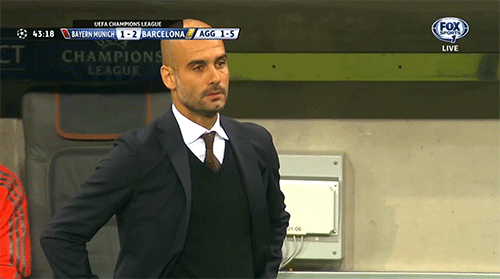Verbal Communication Is Key To Team Success
For any soccer team looking for success, look no further than communication. In order to play as one, the team must be able to communicate as one. It’s no surprise that such an unpredictable game requires an insane amount of on-the-fly talking and readjusting, but, more often than not, communication falls by the wayside when preparing for the big game.
From alerting a teammate to defensive pressure or allowing your goalkeeper to adjust a wall before free kicks– communication is the backbone of any successful soccer team. Thankfully, CoachUp has put together a list of our favorite tips that will help you become a better communicator on the pitch.

Never Stop Talking
It may seem like just an afterthought in preparation, but non-stop talking provides numerous benefits to a team. It allows athletes to stay focused and in the moment, honing their skills as they play and adjusting as they see fit. You don’t need to be a coach or a captain to realize benefits of communication — it may just be the difference between glory and a frustrating loss. Does your teammate have his eyes fixed on the ball? Let him know you’re open by calling out your name. A simple head nod or finger point can be a subtle way to let a teammate know about open space or desired through ball. How many times have you seen harmless pass turn into a goal-scoring opportunity for the other team? Soccer players don’t have eyes in the back of their head, so make sure you alert them of oncoming pressure.
Words Of Encouragement + Direction
Being able to readjust to the game’s nuances on-the-fly can help transform an average team to a real contender. Let somebody know that an opposing striker won’t shoot with his left foot; and make sure a tall player is ready to combat aerial attacks on set pieces, for example. If there’s a head down on the field, do your part to pick it back up.
O Captain, My Captain– Let The Goalie Command The Pitch
Take a quick look at some of the world’s best clubs – Bayern Munich, Chelsea, Real Madrid – and you’ll find an incredibly common pattern: a commanding, dominant, and cerebral keeper. The goalie is often the team’s most important player and the one who oversees the pitch from a tactical position. Little fixes here and there may seem inconsequential, but a loud, organized keeper like Manuel Neuer can be the difference between a clean sheet and a blowout.
The next time you watch a game, pay close attention to the goalie after the ball goes out for a corner. A good keeper rarely slinks back into silence, but instead jumps into action. Pointing, yelling, and physically reminding teammates of certain marks, tactical positions, and wall placement reveals a keeper that has his head in the game.
How many times have you seen a goal come from miscommunication? A simple shout on corner kicks can alert your teammates to get out of the way. Keepers that command their box with certainty and excellence go a far ways towards control over the rest of the pitch. Besides, you don’t want to feel like Wojciech Szczesny, who found himself on the wrong page as his defender in the waning moments of a tournament game, right?
In a way, a team’s keeper is much like a point guard in basketball. While the coach can implement strategies and tactics during practice, it will be up to his keeper to orchestrate them during a game. Be your manager’s on-field eyes! A keeper must make sure the game unfolds as planned from keeping team’s shape defensively to quickly distributing a ball to counter-attack.
(Related: Read about the number 10 position in soccer here.)
Huddle Up
The importance of communication has become understated in soccer, but it’s not difficult to see it as a necessity in cultivating a strong, capable squad. Mastering these steps may be awkward at first, but the player, and the team as a whole, will always come out better for it on the other side. If you feel uncomfortable, just remember that everybody else on the field probably feels the same way — but if you want results, you’ve got to make them happen yourself!
If you’re still having trouble becoming a more effective communicator on the pitch, consider booking one of CoachUp’s private trainers to help you out. Most of our trainers have been effectively leaders, captains, and communicators their entire lives — so don’t waste this opportunity! What are you waiting for?
How useful was this post?
Click on a star to rate it!
Average rating 4.7 / 5. Vote count: 3
No votes so far! Be the first to rate this post.




